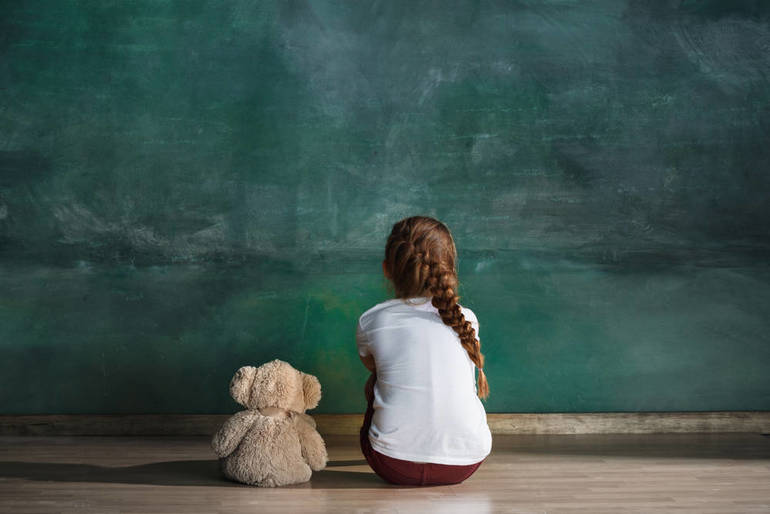Organizations offering mental health facilities provide a broad range of assistance, spanning mental health therapy, counselling, psychotherapy, relationship counselling, adolescent counselling, mindfulness, child counselling, stress management, and personality/behaviour development.
The best psychologist for an individual would hierarchise client confidentiality and possess immense experience in working with people with mental health issues across variegated settings.
Nurturing Young Minds: Exploring the Benefits and Approaches of Child Counselling
Parenting is a challenging voyage. This is made apparent when they fail to provide efficient care to their children struggling with mental disorders. A child psychologist can aid children and parents in confronting the challenge, going through counselling and encouraging child development.
Child psychology aspires to study and tend to children’s and adolescents’ behavioural, emotional, mental, and social health. Adolescent or Child counsellors use various therapy strategies to analyse psychological problems, use medications, evolve prevention solutions, and give overarching care.
Child and Adolescent Mental Health Issues Addressed
Adolescents and children face many problems that can negatively affect their influential years and, therefore, require psychological support. These may include anger management, trauma, autism, learning disabilities, substance abuse, and bullying.
Many mental health issues need to be addressed. These issues are related to children and teenagers’ emotional, cognitive, and behavioural development.
- Behavioural Problems– Young people face behavioural challenges like aggression, disobedience, attention difficulties, and conduct issues. Adolescent counselling helps to develop emotional regulation skills. Psychologists can help their young patients to cope with anger, sorrow, disappointment, and frustration. Social skills can also be progressed with the help of counselling, such as peer relationships and honest communication.
- Learning Disabilities– Counselling helps to point out and acknowledge learning disabilities. These can also be developmental delays and impact academic performance.
- Anxiety and Phobias– Childhood is a crucial time for children. They can easily be influenced, traumatised, or impacted. They may face anxiety disorders, phobias, and fears. This may negatively affect children’s daily living and functioning.
- Attention Deficit or Hyperactivity Disorder– Child counselling takes into account symptoms of ADHD, hyperactivity, and impulsivity.
- Autism– Child and adolescent counselling helps provide autism care and support to enhance communication and social skills.
- Trauma and PTSD– Traumatic events can influence a child’s developmental and healthy growth. There are many trauma-focused therapies to help children build their mental health.
- Bullying– Bullying is a rising drawback for children and teenagers. They manage and cope with bullying through counselling so that they will not be victimised. This can also help promote a positive school environment.
- Depression and Self-Esteem– Depression symptoms in children can be mood change, appetite loss, and unhealthy sleep patterns. Child psychology helps to recognise, identify, and treat these symptoms.
- Family and Parenting Issues– Divorce or separation of parents, family conflicts, or toxic parenting can be reasons why children may need counselling.
Therapies For Child and Adolescent Mental Well-Being
A child psychologist acknowledges the problem through various therapy strategies such as music, behavioural, art, occupational, and play therapy. Dialectical Behavioural Therapy (DBT) and Cognitive Behavioural Therapy (CBT) are also incorporated. Sometimes, child-parent therapy and family counselling may also be needed.
Impactful and Efficient Parenting Techniques
There are many healthy parenting techniques that parents can learn from child psychologists. The best psychologist can help children, teenagers, and their parents to ensure a joyous childhood. There are many strategies used in child psychology to establish a holistic youth.
For instance, positive reinforcement is a valuable parenting technique. Parents or guardians can encourage good behaviour and habits through appreciation, rewards, and acknowledgement. Parents/guidance can also set consequences for children’s behaviour. In this way, children can understand their parents’ expectations, and there will be no room for insecurity.
Parents and guardians need to set clear and age-appropriate boundaries so that children can understand the meaning of limits. They can identify when they or someone else is crossing a limit. This will make children feel safe and secure.
Parents can also be positive role models for their children. Children develop a lot through observational learning. Children can learn valuable life skills if parents show positive, empathetic, and problem-solving behaviour. Child psychology helps teach parents how to be positive role models for their children.
In an age where mobiles, the internet and technology easily influence children, parents must monitor their children’s media usage. They can do this by managing their child’s exposure to media, screen time, and content. This can have a positive impact on their social and cognitive development.
Dr Dipti Yadav is a seasoned therapist with more than two decades of expertise in delivering mental health services. She offers support to children, adolescents, young adults, couples, and families dealing with various challenges, including stress, anxiety, phobias, depression, and more.
About Author
The author is a qualified therapist with 20 years of experience as a registered psychologist under the Rehabilitation Council of India. Her mental health expertise includes stress management, dealing with depression, and couple counselling, among others. The positive feedback she has received from her clients stand as proof of her merit and experience in the mental health field. To know more you can contact us at info@wellbeinghelp.com.


